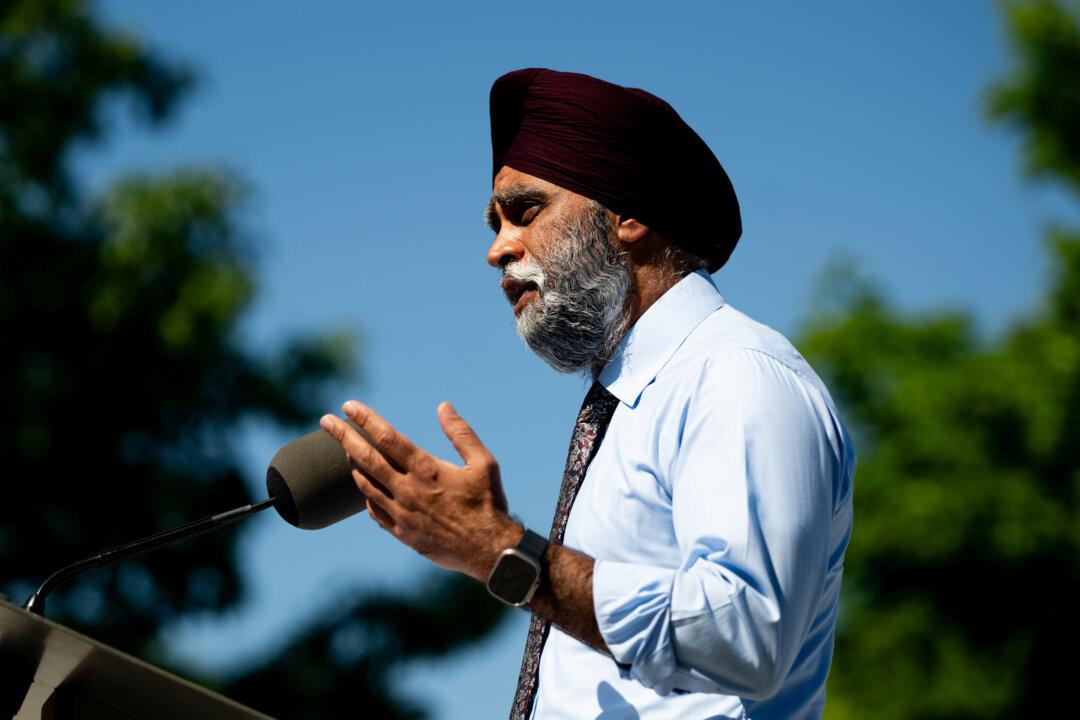Emergency Preparedness Minister Harjit Sajjan has defended an official request he made to use Canadian Armed Forces soldiers as a backdrop for a concert by a Punjabi pop star.
“Minister Sajjan agreed the concert would be a good opportunity for the Canadian Armed Forces (CAF) to engage with and expand connect to a diverse community of young Canadians, along the lines of the CAF outreach and recruiting events at professional sporting events,” Sajjan’s press secretary Joanna Kanga told The Epoch Times in an email.





